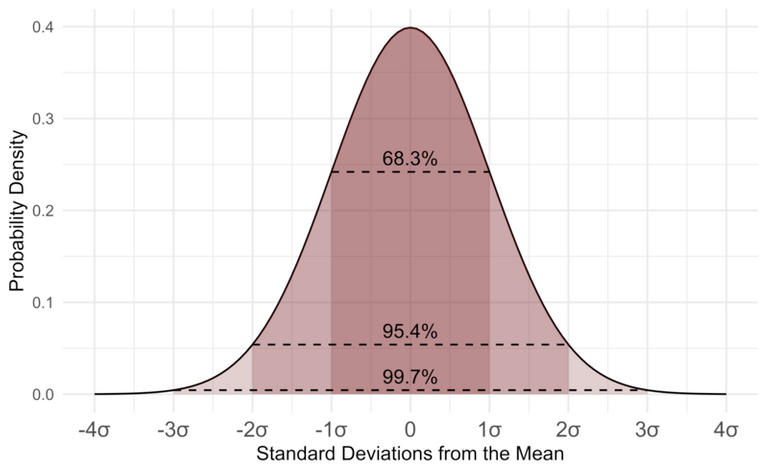This is my third post in my series on Barnevernet, the two first was about the biggest problems with Norwegian Child Protection Service (it's the stigma and fear and that one may end up facing incompetent employees with too much power).
From the comments, at least the Child Protection Service in the UK is working the same way - it's an organization supposed to help, but it's also an organization that may forcefully take the children out of a family based only on circumstantial evidences and personal subjective opinions.
Another thing with the Norwegian society, one is encouraged to report anything suspicious to Barnevernet, and for doctors and nurses, people working in the school, etc, it's mandatory to report things (haven't we learned anything from the DDR regime?).

Barnevernet is missing a logo, here is something for the inspiration
The reports are called "bekymringsmelding", literally "worry message" (Google Translate suggests "message of concern", that's probably a better translation) and we've had worringly many such messages since we moved to Oslo. It's my impression that with the last round we had with Barnevernet, the lady there was just counting how many reports we had accumulated so far, and quickly decided "those people are not fit to be parents" based on the tally.
I've been thinking relatively much on this over those nine months she was investigating us - why do we get that many - and considered some risk factors that makes us a more likely target for those reports than many others. Some of the risk factors can be partly explained through genetics - me, my parents, my granddad, my wife, her parents, our children ... of course we're very different people, but I see many similarities too ("We" below always refers to a subset of the people mentioned).
Chronotype

Some people are early birds, others are night owls. The early bird goes to bed early and gets up in the mornings, the night own has the most productive time in the late evenings, have no wish to go to bed in the evenings, may stay up until long, will not fall asleep even if forced to lie down in the bed with the lights turned off, and ... naturally, sleeps for long in the mornings. We are night owls, and the society tends to reward the early birds. Consider the mornings, the early-bird-children will get up from bed by their own, parents will have good time to prepare and enjoy breakfast. In Norway we even have to spend morning time packing a box of sandwiches for the children as the schools cannot afford food for the children, but the early bird has plenty of time for fixing a nutricius delicious lunch box - so the children will get in time to school, properly fed and prepared for the day and with a good lunch box in the rucksack. We have had varying success on introducing strict morning routines, but for us the mornings have often been a complete mess. First it's difficult for the parents to get up from bed at all, then a lot of time and energy has to be spent on waking up the children. The children are often in a bad mood for being woken up so early, and when having several children it's enough with one misbehaving child to destroy the time schedule, resulting in children going to school without eating breakfast, stress and panic when the children are to leave (causing the lunchbox and the gym bag to be forgotten), children coming late for school, and children being in a bad mood at school. Bad mood at school, forgotten lunch box, forgotten gym bag and coming late to school - that's all potential reasons for a message of concern.
I was even worse than my children when I was a child (possibly partly because I was living above the polar circle, it was daylight 24/7 in the summer time and dark almost 24/7 in the winter time). My mother could put me into my sleeping room and get angry if I would come out from there again. I would pretend sleeping and wait for my mother to go to bed. I would even pee out the window instead of seeing the toilet. Some years later, when I was supposed to take the responsibility myself ... I could be prepared for school, check my watch, I still had five minutes until I would need to run ... so I went down on the floor to relax for five minutes, and woke up some hours later ...
One of the things that have changed for the children after moving to Russia is that school starts a bit later. I think that is one of the reasons why things are working out so much better for them now.
Interest in school
![]()
Our families generally consists of academics, (nuclear) engineers, teachers, scientists and traders. We're learning letters and numbers long before starting in school. We are far above average competent in mathematics and many other theoretical subjects. We should be interested in school - but when we get there, we're just bored! Learning numbers and letters over again? Doing repetitive tasks over and over again to make sure that we know the letters and numbers? Doh! It was a big problem when I went to school, and it was a big problem for some of our children. All dependent on the teachers, it may cause conflicts. Things are working out better in the Russian school.
When the children don't want to go to school, it increases the frictions and problems in the morning as well, it causes a negative feedback cycle as we have to spend more time and negative energy on getting the children to school and getting the children to do homework. It makes the climate at home worse, and makes it more likely that the school will send messages of concern. Things worked out so much better with one of my children when I totally stopped nagging on him that he should go to school and do his homework. However, the school was less impressed.
Introverts versus extroverts

The society tend to reward the extroverts, lack of social activity is considered to be a reason of concern, pupils that raise their arms frequently during class and says things tends to get better marks than the pupils that don't want to seek attention.
We tend to be a bit more introvert than extrovert, we tend to be shy, we tend to have some anxiety towards certain social situations - like, not wanting to take telephone calls, not wanting to visit a shop where it's needed to talk with the staff, we prefer being together with few people rather than big parties. One of my children even denied going to birthday parties, even when it was his best friend. We've had two children that wouldn't talk at all in the kinder garden or school (selective mutism).
In both cases the problems really started due to the way the children were met in the kinder garden - and in the second case the kinder garden reported this problem to Barnevernet rather than trying to deal with the problems in the kinder garden (she started speaking when we moved her to a smaller and better kinder garden, but the problem came back when she began in school).
Of course, children that can't speak is a big red flag for Barnevernet. The professional that was supposed to help her at school considered that the reasons probably was at home because Barnevernet was involved. Of course, we know very well that the children can speak - but out in the kinder garden and school they may experience the child to be without language at all).
Sensitivity
This is something I wasn't aware of until my wife did some research on it. Particularly one of our children really don't like noise - and the kinder garden she went to was really bad for her, it was an "open design", most of the kinder garden was one big room for lots of different children and some few smaller rooms. The kinder garden was divided in two, one part for those under three and one for the "bigger" children. Our daughter was speaking when she was in the more sheltered department for the smallest children, but stopped when she was transferred to the bigger part of the kinder garden.
I'm also easily getting stressed and annoyed from noise, if I'm trying to concentrate on work or other tasks and then several children at the same time is trying to get my attention ... then I tend to get really stressed and sometimes also quite annoyed.
Temper, aggressiveness and stubbornness
I think some of us may be a bit above average aggressive sometimes. I hope I've gotten better at it over the years, but I do remember having quite bad strategies for handling disagreement and conflicts, and I can see that in our children sometimes too. For at least two of our children the problems have tended to get out of hand if they didn't get enough to eat. (Now that was a known problem. The youngest children are having some after-school activities at school, and they are supposed to get some food there. Now all they could afford was some crispbread, by son didn't like crispbreads and denied eating them, and it was only a year later that we learned that he didn't get food at the end of the day. No wonder he was "making problems"!)
I remember having heated debates on Fidonet when I was a teenager, and one adult person tried to tell me that I'm very stubborn - and I replied something like "I'm not stubborn, it's just that I know that I'm right". (and as far as I remember, I was also right). I think I'm not that stubborn nowadays - but the rest of the family can be quite stubborn.
The number of children
Of course, the more children, the more likely one is to get messages of concern - and we have four, which is quite above average here in Norway.
Not being "square" enough

For some of the people reporting things to Barnevernet, anything out of the normal can be a trigger.
The more normal one is, the less risk of collecting messages of concern. We used to have a state religion, being a member of the Church of Norway would for sure reduce the risk - now agnosticism is probably the major "religion" in Norway. I'm quite sure that people voting for the biggest political parties run a smaller risk than people voting for the smaller parties, and politically active people have a bigger risk than people that are only active when delivering the vote at the election day. Both parents should preferably have an ordinary day job, working for 8 hours a day (including lunch break), but still have plenty of time for delivering and picking up the child, fixing lunch boxes, housework, meetings with the school and whatnot (it can get really bad with meetings when Barnevernet gets involved ... I need to work, I need to feed the children, I need to clean the house, and I really should teach my children swimming, skiing, biking and skating, and give them lots of good childhood memories ... I don't have time for lots of meetings!)
Earlier particularly gipsies and the aboriginal saami people where often targetted by Barnevernet. Immigrants are also typically having a bigger risk of collecting messages of concern.
As for our case, I really should make a collection of the weirdest things that have been reported to Barnevernet, it's quite many things that really is totally irrelevant with regards of our capability of taking care of our children - but that's for another time.
Questioning authorities

Benjamin Franklin said, "It is the first responsibility of every citizen to question authority" - questionning the authorities is important in any working democracy. In my opinion, even children should be teached early on to question authorities. At the other hand, it takes quite a lot of energy and time when the children constantly question their nearest authorities (their parents), the school and kinder garden may not like being questioned, and if being unlucky with Barnevernet, the staff there may tilt if they are being questioned. (I think that's a big part of what happened during our nine worst months with Barnevernet - the person responsible of investigating our family was just not used to parents disagreeing with them).
We have a feeling that both the kinder garden and the school have been sending messages of concern to Barnevernet as a response to a mother trying to point a finger on problems in the way our children were met there.
Summing it up
To avoid problems with kinder garden, school and particularly Barnevernet, one should ideally be a completely square and ordinary family with only one child, everyone being early birds, the child should be just averagely talented at school, the child should be an extrovert, tolerant to noise and impressions, both the child and the parents should be submissive, never angry, always agreeing in whatever opinions the staff at the kinder garden, school and at Barnevernet should think, vote on one of the biggest parties, be a passive member of the Church of Norway and never have any political points of view except when casting the ballot vote on the election day.
Sources
This is totally based on my own experiences, impressions and what I've learned from talking with other people. If you think I'm wrong, please use the comments section!
Image sources
- Stasi logo, from Wikipedia Commons - Public Domain
- Early bird, from Wikipedia Commons - Rajeshghadigaonkar, CC BY-SA 4.0 (it looks more like a night owl to me)
- School, from Wikipedia Commons - Brian MacIntosh, CC0/Public Domain
- Introvert, from Wikipedia Commons - MissLunaRose12, CC BY-SA 4.0
- Standard distribution, from Wikipedia Commons - D Wells, CC BY-SA 4.0
- Questioning authorities - Found on the fee.org website, Copyrights may apply.
It is mandatory to report concerns concerning children's suspected abuse and negligence, to Child Protection and Police. Most of the time the system works but like all systems they are not perfect.
Thank you for the post @tobixen, as usual you are very informative.
Of course, children needs to be taken away from abusive parents, and it's impossible to get the balance right - it's either to take too many children away from too many parents, or to let too many children grow up with abusive parents.
After being targeted by Barnevernet, it feels to me that it's better to break up too few than too many families.